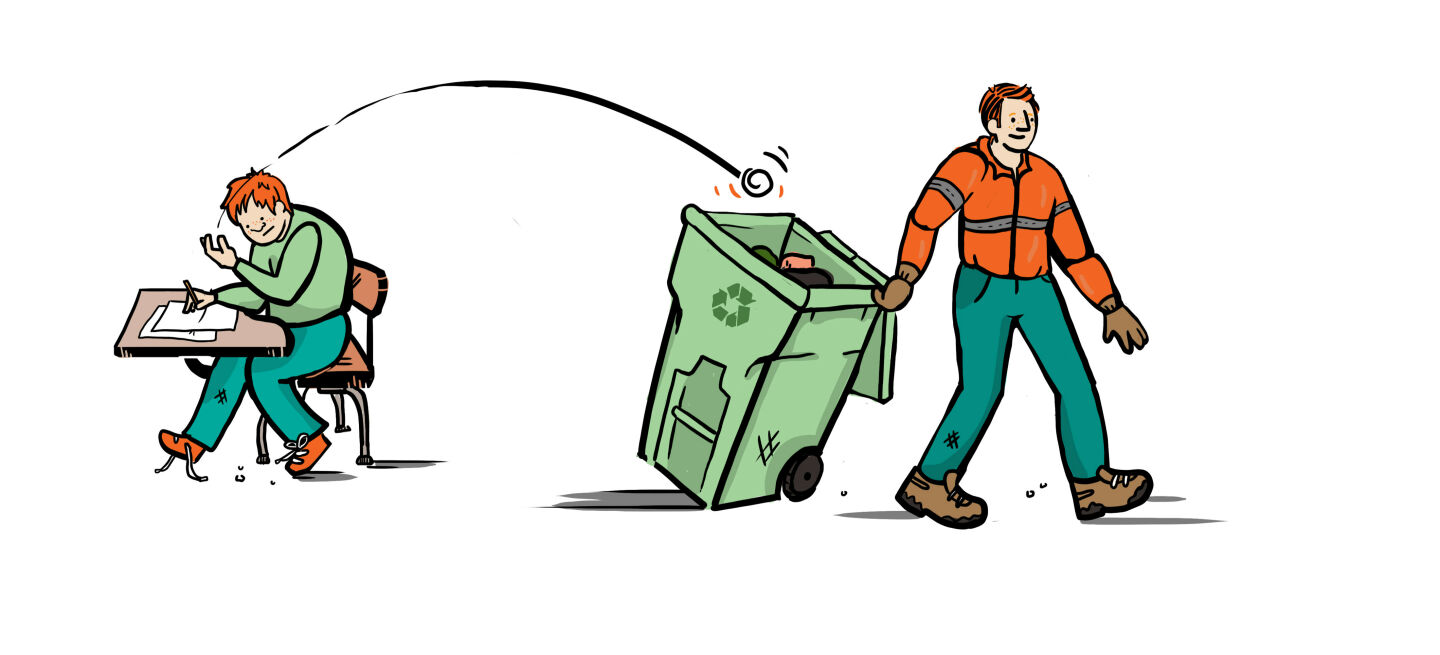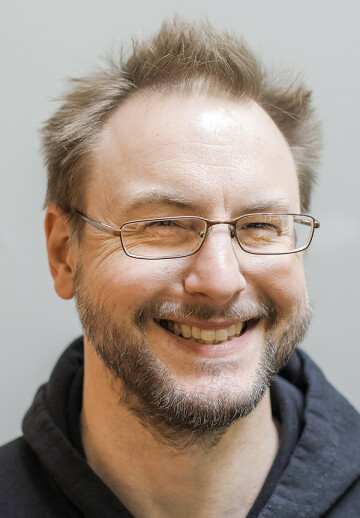COLUMN: Planting Seeds for Tomorrow
as difficult as it may be in the moment, there’s always time to begin again
Andrew Patrie, illustrated by Lydia “Nibs” Noble |

Andrew Patrie, illustrated by Lydia “Nibs” Noble |

In December of 1997, fresh out of college with a degree in English education, and with no career in sight, I took a part-time job at a child and adolescent treatment center co-supervising a unit of half a dozen boys aged nine to twelve years old.
One afternoon I worked a shift with a social work major named Sarah. One boy, I’ll call him Travis, was sitting cross-legged on the floor playing chess with another boy. Suddenly, Travis scattered the game pieces with a swipe of his hand, cursing at the boy across from him for not knowing how to play.
We called to Travis, but his gaze was distant, unreasonable, beyond our reach. When a boy went into “crisis,” an agitated state in which he could harm himself or others, we were trained to physically restrain the child. His arms were swinging wildly, so Sarah got behind him, securing his wrists in her hands and pulling his arms straight-jacket tight against his body. She slid down, taking Travis to a seated position on the floor. I secured his legs, essentially lying over his feet. He yelled at us, tried to bend his knees and wriggle free. “Come on, Travis, just calm down,” I said. For a moment, I thought my words had gotten through. He stopped his thrashing. Then, I heard him make a noise, like heavy furniture dragged across a room. As I looked up at him, he dredged all the phlegm he could collect from the back of his throat and spat it at me. The dripping mass clung to the hinge on my glasses, hanging like a stalactite.
Twenty-four hours later, I was back for another shift. Travis and I played chess together, cordial and chatty, as if our previous encounter had been a fiction. I wasn’t seeking an apology. I knew it wasn’t personal; I simply happened to be working the day he went into crisis. When he took my knight, a calculated move I did not see, he did a little dance that made me smile. Suddenly I’d forgotten what was written in his file and saw him like any other kid: bright and funny and capable. “Seed planting,” a colleague friend called it. “You have to trust that what you do for kids now will yield fruit later. Even if you’re not around to see it.”
”
“Seed planting,” a colleague friend called it. “You have to trust that what you do for kids now will yield fruit later. Even if you’re not around to see it.”

ANDREW PATRIE
I carried this with me into my first year teaching, where I met a sophomore I’ll call Jack. He was perpetually slouching in the back of the room in shorts falling well below his knees.
It was after lunch. American Literature. I asked students to open Emerson’s essay, “Nature.” I remember standing in front of the class and comparing the reading of Emerson to winter driving in Wisconsin. “You have to go slow,” I said, “and pay attention. Otherwise, your mind might swerve.” Jack, who hadn’t bothered to even take out his textbook, looked over his shoulder, out the back window, into a sun-dappled September afternoon. He raised his hand and said, “Does that mean Emerson will finally make sense some time in December?” The class snickered. I ignored the comment, and my seasonally inappropriate analogy, and began going over the day’s objectives. I noticed Jack mimicking my mannerisms. I stopped talking and stared at him, hoping to shame him into silence. Instead, he extended his arms outward, in a cruciform pose, and said, “What?”
“Jack,” I sighed, “out in the hallway. Now.”
Jack took a moment to gape at his peers, made a “pffff” sound, and followed me out. We stood in front of a row of lockers.
“What’s your problem, Jack?” I said. “I’m just trying to start class.”
Again, he threw his arms out in a beleaguered manner and said, “I don’t understand why the man is coming down on me.”
I was 23 years old; it was hard to conceptualize myself as “the man.” But he was 16 and I was an authority figure. I explained I didn’t take this job to “come down on him.” Rather, I wanted to do right by him and his peers. I asked for a truce.
“Whatever,” he said. “It’s your show.”
We returned to the classroom and, like with Travis, began again.
Over the years, I never heard from Travis, but Jack and I stayed in touch. He graduated, got married, and created a more environmentally conscious waste management company. My family eventually switched over to his service. When he dropped the bins off one night, the stars were out. Tiny seeds strewn across a vast field of sky. I told him I was happy to see he was still fighting “the man.” He just smiled and wagged his right index finger at me, the way we do at people who know things about us others never will.